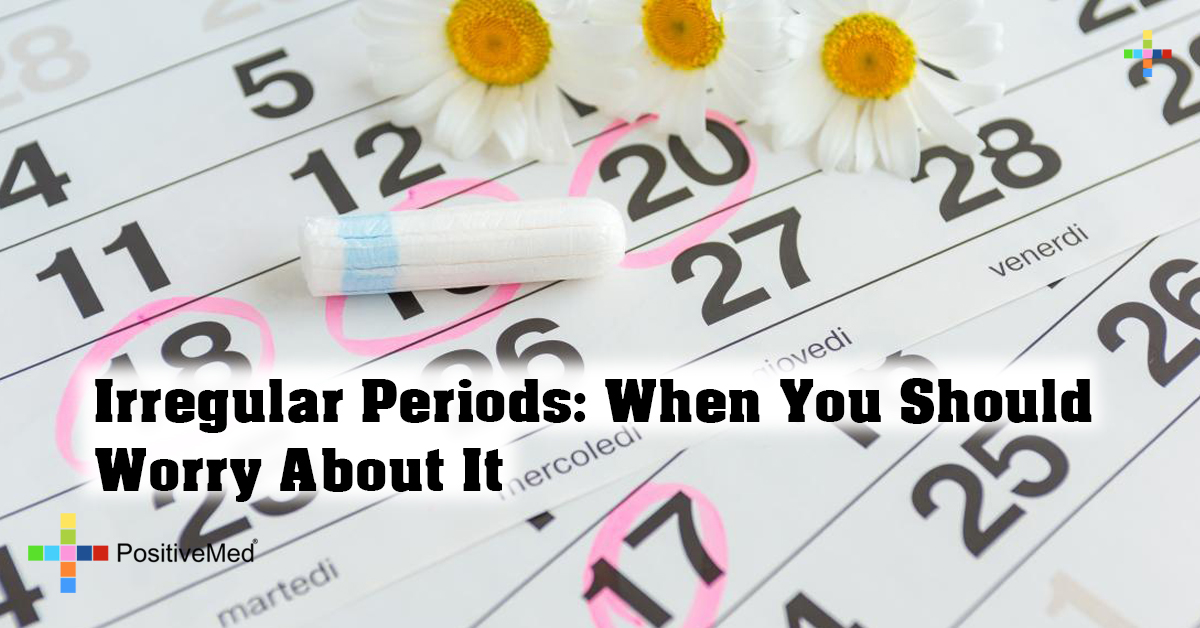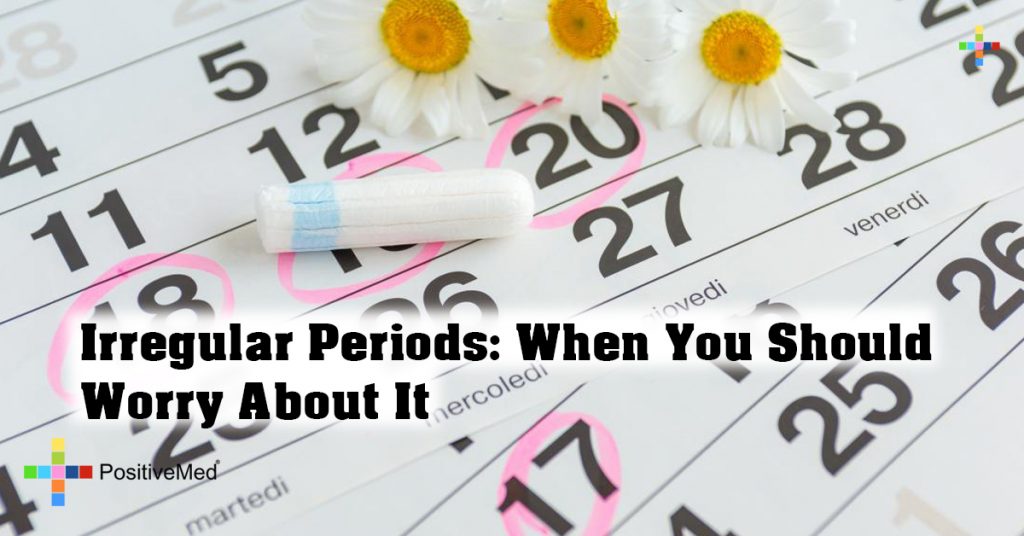
[nextpage title=”…”]
The average period of a menstruation cycle is between 21-35 days. Any other figure out of this range is considered irregular. Every woman experiences irregular periods at some point in life. Women with regular periods have 11-13 menstrual cycles per year. It is vital to note that every woman has a different cycle. Therefore, what is normal for one woman is not the same for another. In most of the cases, irregular periods are not an issue to worry about, but sometimes they indicate health complications.

Causes of irregular periods
Several things could cause irregular cycle. Most of the causes are some of the things people have to deal with in their daily life such as stress and irregular sleep patterns.
•
Age
Women experience irregular periods at the end of their menstrual years when they reach perimenopause and menopause.
•
Stress
When a person is stressed, cortisol hormone interferes with the normal hormone balance. Cortisol hormone determines how much estrogen and progesterone are produced. These two hormones govern the menstrual cycle. The more the stress, the more the cortisol hormone in your body. This causes irregular periods.
•
Weight changes
Weight dictates how much hormones will be produced by the body. When the fat level is below or above average, it messes with the menstrual cycle resulting in irregular periods.
•
Irregular sleep patterns
Sleep has several benefits to your body. It gives the body time to repair and be able to function well. The quantity and quality of sleep a person gets every night affects hormone leptin, which then affects ovulation. Most medical practitioners recommend an average of 8-10 hours sleep every night to ensure the hormones are balanced. Irregular sleep patterns result in irregular menstruation.
•
Medications
Some medications like ibuprofen, aspirin, Coumadin, and naproxen can affect the production of estrogen and progesterone, which in turn leads to irregular periods.
RELATED ARTICLE: 5 Hormones That Mess With You Every Month and Natural Ways to Balance Them [/nextpage]
[nextpage title=”…”]
• Polycystic ovary syndrome, PCOS
Tiny cysts on the ovaries characterize this disorder. This condition is quite prevalent, and approximately 5 million people in the USA are dealing with it. The cysts lead to irregular periods as well as other disorders such as infertility, increased risks of heart diseases and diabetes, and weight gain.
• Thyroid disorders
Thyroids in the body regulate how the cells metabolize energy, which affects body temperature and rate of heartbeat. Thyroid disorder can either be hypothyroidism, meaning that the thyroid gland is not making sufficient thyroid hormone, or hyperthyroidism meaning the thyroid gland is producing a lot of thyroid hormone. Hypothyroidism slows down the body and makes a person feel sluggish. Hyperthyroidism speeds up body processes, and this makes a person anxious or nervous. Thyroid disorders cause irregular periods.
• Endometriosis
This is a condition whereby the lining of the uterus grows outside the uterus. This condition causes severe pelvic pain, irregular periods, and infertility. Irregular periods are the most prevalent symptom of endometriosis. Irregular periods occur because the endometrium is not where is should be, and therefore, it is not regulated by the body as it should. Exploratory surgery is the only way to diagnose endometriosis.
Dangers of irregular periodsWomen with irregular menstruation have increased possibilities of having ovarian cancer and dying from it.
When women should worry about itIrregular periods are normal. Nevertheless, if you have several missed periods, or you notice certain irregular periods, it is advisable to see your gynecologist as there may be an underlying complication.
What to do about irregular periodsIrregular periods can be annoying. If leading a stress-life, getting enough sleep, and maintaining a healthy weight does not work out for you, it is recommended you see a gynecologist. Acupressure, acupuncture, and herbs can be of great help.
Irregular periods are a health burden to most women in the society. Most women do not see their doctors when they notice irregular bleeding. Do not be shy about this condition; you are not alone. Approximately 30% of women seek medical assistance
due to this condition in their lifetime.
[/nextpage]








